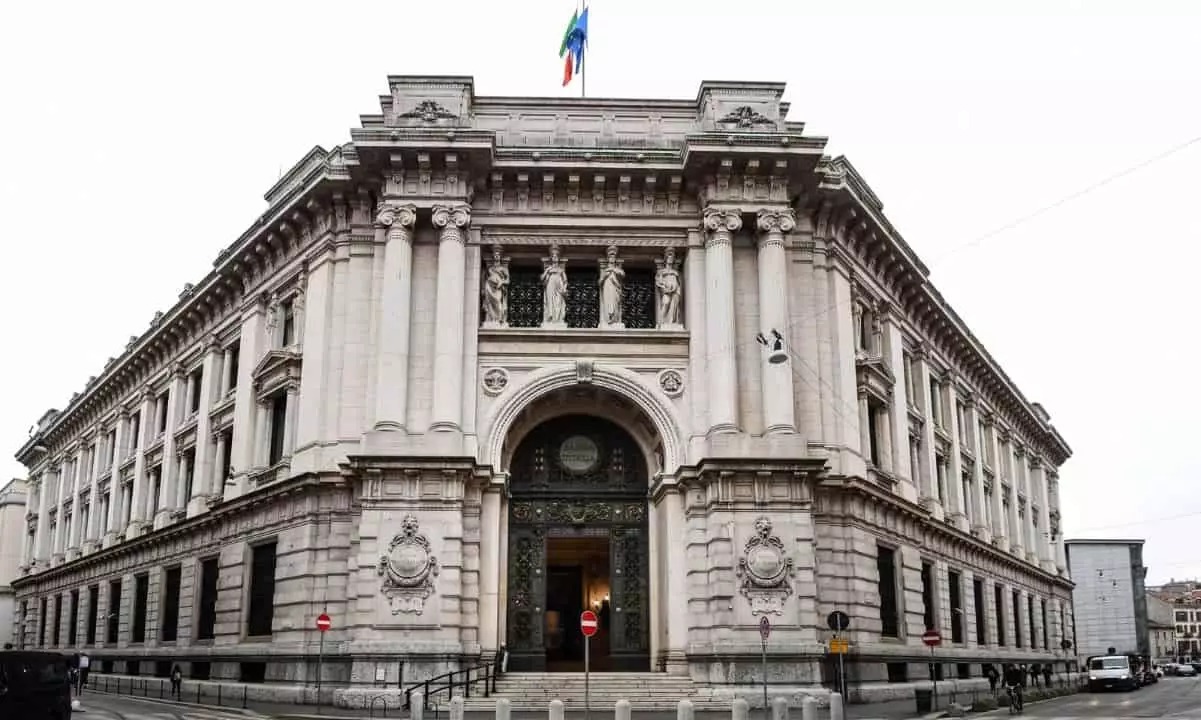As digital currencies like Bitcoin gain traction across various sectors, major institutions worldwide are beginning to acknowledge their potential. The allure of Bitcoin extends beyond mere speculative investment; it symbolizes an innovative financial future. Yet, despite this growing enthusiasm, skepticism lingers, especially within traditional financial establishments. Among these skeptics is the Bank of Italy, which has sounded alarms about the vulnerabilities associated with Bitcoin, particularly concerning peer-to-peer (P2P) services.
The Bank of Italy’s concerns stem from viewing Bitcoin not as a harmless innovation but as a tool that can facilitate illicit activities. In its Economic and Financial Occasional Paper, released in November 2024, the bank referred to P2P services as “crime-as-a-service.” Through the lens of this institution, these platforms do not merely offer accessibility for average users; they enable a dangerous framework exploited by criminals. Such services circumvent existing regulatory measures, notably in regions where financial oversight is lax.
The paper emphasizes that these unregulated P2P platforms and informal exchange networks often avoid essential protocols like Know-Your-Customer (KYC) and Anti-Money Laundering (AML), which are intended to safeguard against the misuse of financial systems. By doing so, they create conduits for obscuring the origins of illicit funds, further complicating the fight against money laundering.
One of the core challenges identified by the Bank of Italy is the rapid evolution of decentralized finance (DeFi). Unlike centralized finance (CeFi), which is more readily regulated, DeFi systems operate without intermediaries. This lack of oversight raises paramount concerns about accountability and compliance. The pseudonymous nature of Bitcoin transactions allows users to engage in financial activities while concealing their identities, enhancing the potential for misuse.
Interestingly, this dichotomy between the perceived transparency of blockchain technology and its actual potential for abuse reveals a complex landscape. While blockchain’s immutability and transparency are often lauded for offering a new paradigm in financial transactions, they simultaneously offer a shield behind which illicit activities can thrive. Critics argue that the promise of blockchain technology does not address the urgent need for continuous monitoring to identify and respond to suspicious transactions.
The critical viewpoint expressed by the Bank of Italy underscores an urgent need for regulatory bodies worldwide to reassess their approaches to digital currencies. While institutions may be quick to embrace Bitcoin for its innovative potential, it is crucial to balance this enthusiasm with a recognition of the associated risks. Fostering a framework that encourages responsible innovation in cryptocurrency is essential, alongside the development of comprehensive strategies to combat potential abuses.
As Bitcoin and its P2P services continue to evolve, ongoing dialogues between traditional financial institutions, regulators, and cryptocurrency advocates are vital. Addressing these concerns will not only safeguard financial systems but also enhance the broader legitimacy of digital currencies in the financial ecosystem.
















Leave a Reply